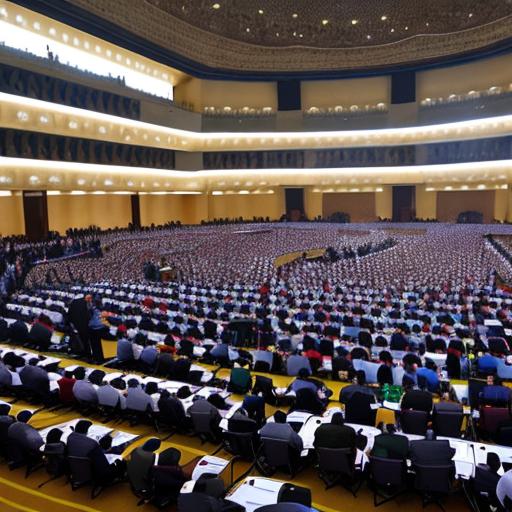Islamic Heroes, The world is shaped by individuals who rise above the ordinary and embody the principles of justice, compassion, and wisdom. In the Islamic world, numerous figures have emerged throughout history as beacons of inspiration and leadership. These individuals, through their contributions, have left a lasting impact not only within their own communities but also on a global scale. This article delves into the lives and legacies of some Islamic heroes who have stood as guiding lights, demonstrating remarkable leadership and influence. There are some Islamic Heroes.
Salah ad-Din al-Ayyubi (Saladin):
Salah ad-Din al-Ayyubi, widely known as Saladin, is regarded as one of the most iconic figures in Islamic history. He rose to prominence during the 12th century as the leader of the Muslim forces during the Crusades. Saladin’s unwavering determination, military prowess, and chivalry won the respect of his allies and foes alike. He famously recaptured Jerusalem from the Crusaders and promoted peaceful coexistence among diverse religious and cultural communities.
Sultan Suleiman the Magnificent:
Sultan Suleiman I, also known as Suleiman the Magnificent, ruled the Ottoman Empire during its golden age in the 16th century. His leadership skills and strategic vision transformed the empire into a global power. Suleiman’s administrative reforms, known as the Kanuni (Lawgiver) code, established a just legal system and promoted social welfare. Under his rule, the empire flourished culturally and economically, leaving an enduring impact on Islamic civilization.
Sheikh Zayed bin Sultan Al Nahyan:
Sheikh Zayed bin Sultan Al Nahyan, the founding father and first president of the United Arab Emirates (UAE) is revered as a visionary leader. He united the seven emirates into a strong and prosperous nation while prioritizing the well-being of its citizens.
The leadership of Sheikh Zayed was characterized by a commitment to education, healthcare, infrastructure development, and environmental conservation.
. His legacy as a benevolent ruler and advocate for regional stability continues to shape the UAE and inspire leaders worldwide.
Malala Yousafzai:
While not a ruler in the traditional sense. Malala Yousafzai has emerged as a powerful symbol of courage, resilience, and advocacy for girls‘ education. Born in Pakistan, she defied the Taliban’s ban on education and championed the right to education for all children, especially girls. Despite surviving a targeted assassination attempt, Malala’s unwavering determination led her to become the youngest Nobel Peace Prize laureate in 2014. Her influence has transcended borders, inspiring young people globally to strive for education and gender equality.
Muhammad Ali Jinnah:
Muhammad Ali Jinnah, also known as Quaid-e-Azam (Great Leader), played a pivotal role in the creation of Pakistan as an independent nation in 1947. As the leader of the All-India Muslim League, he worked tirelessly to secure the rights of Muslims in British India. Jinnah’s leadership and negotiation skills led to the establishment of Pakistan as a homeland for Muslims. He envisioned a democratic and inclusive state, advocating for equal rights for all citizens.
Sheikh Mohammed bin Rashid Al Maktoum:
Sheikh Mohammed bin Rashid Al Maktoum, the Vice President and Prime Minister of the UAE and Ruler of Dubai. He has been instrumental in transforming Dubai into a global city. Under his visionary leadership, Dubai has become a center for finance, commerce, and tourism. Sheikh Mohammed’s emphasis on innovation, diversification, and sustainable development has propelled Dubai’s growth and positioned it as a hub for entrepreneurship and cultural exchange.




